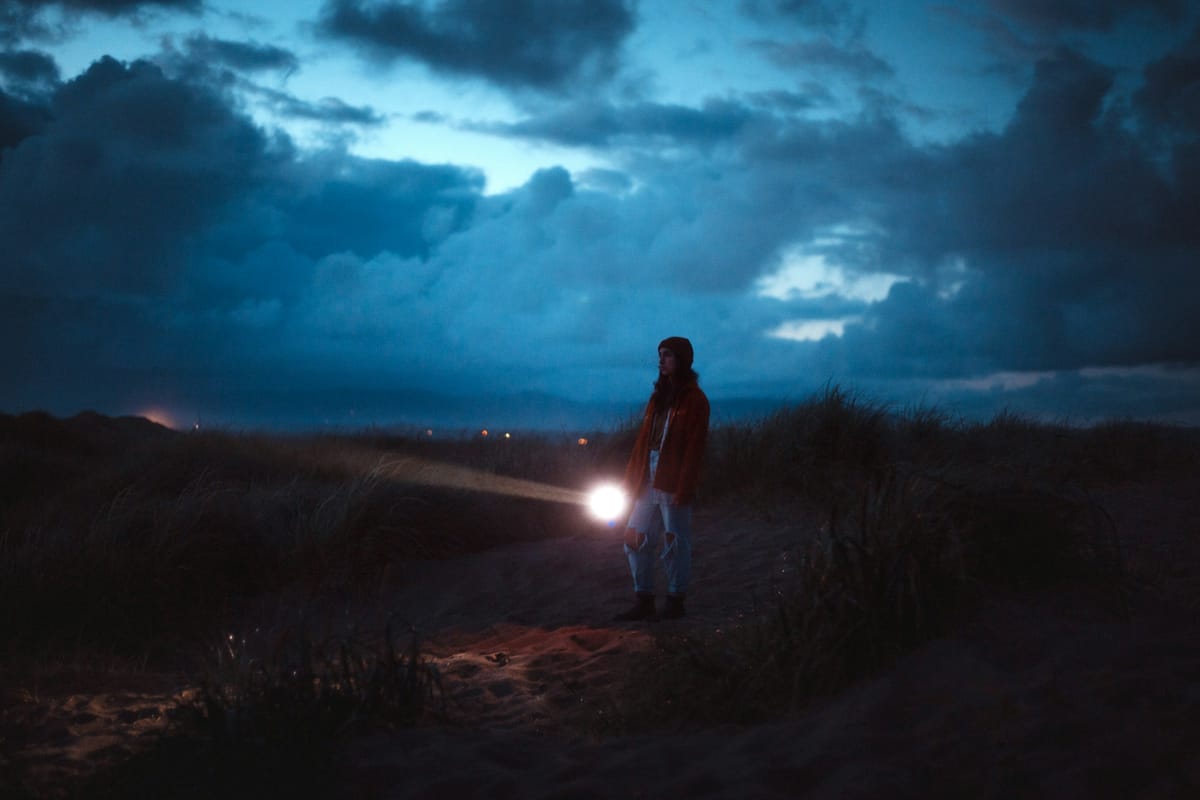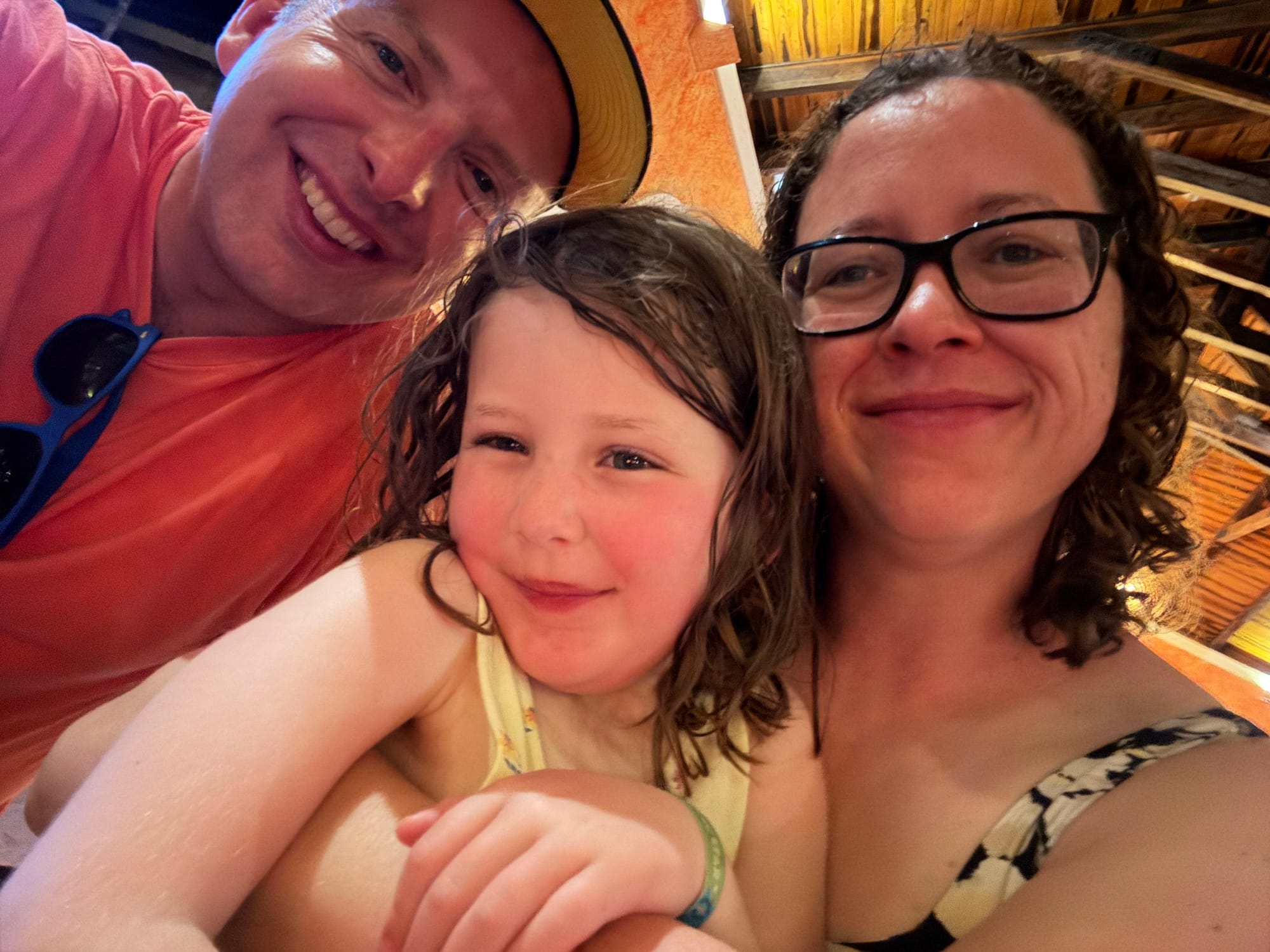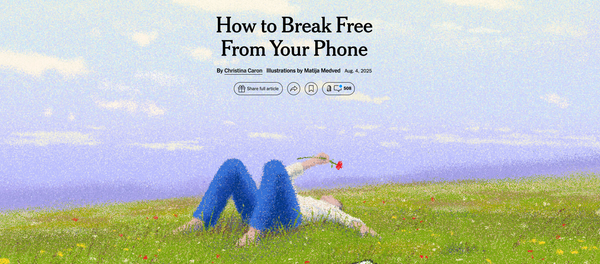Media Notes: A thoughtful, humane life with tech
And other post-vacation reading and listening recs

Greetings, Playbook-ers. (That doesn't really work, does it? I'll keep pondering.)
I'm back in the saddle after six nights in Mexico. Last year, our family didn't take our summer vacation until mid-August, and by the time it rolled around we were like, "OMG we are exhausted. What were we thinking?!" So we decided to take a quick post-Easter trip this year, and that was a very good idea—especially in light of how challenging a year it has been. We'll need a new plan next year with F starting kindergarten, but I definitely see the appeal of this kind of church leader travel schedule.
I'm still cooking on my next big piece, tentatively titled "Forming Finitude." In the meantime, I have some quick notes on a wonderful book I've been reading and a few other thoughts on some pieces you might want to check out.


Searches: Selfhood in a Digital Age
I'm about halfway through this playful, reflective book by Vauchini Vara, which of course I heard about via the Culture Study newsletter. I'm not surprised Anne Helen Petersen called it the best book she's read this year.
The structure here is roughly chronological, with an elder millennial walking through the history of the internet via reporting, autobiographical reflection, and very moving and original interstitial engagements with her own evolving digital footprint. Together, we get a rich and rounded picture of the promise and power of the Web, for good and for ill.
The vulnerable show-and-tell from Vara's own search history, broadly understood, really make the magic happen here. There's a chapter consisting merely of dozens and dozens of her own Google searches drawn from more than a decade, presented without commentary (though the whole thing is informed by the autobiographical material preceding it). There's a chapter of her very meta and gently subversive Amazon reviews, which she forces herself to write as a discipline intended to curb her use of the delivery service. There's a running dialog with some LLM chatbot in which she asks for and receives feedback on chapters uploaded in their entirety to the app. ("In their final, edited form?" I often wondered, "or are we seeing feedback on drafts presented alongside the revised material?")
So far the title is indicative: Here search is the organizing idea, again in a broad sense comprising not just browser queries but the very human act of seeking to gain understanding of world or self via any cognitive tool or other that might be able to offer some help. As I said, I'm not finished with this one (I get the impression AI is an increasingly significant topic as the book progresses), but I'm already glad I did the sensible thing and dug into a Culture Study rec. Check it out!
Neurodiverse Welcoming at St. George’s
I forget where I stumbled across this (emailed it to myself from vacation—happy to give hat tip if sharer reaches out!), but I love this page of welcoming practices for neurodiverse folks by St. George's Episcopal Church in La Canada, CA. Resources for supporting neurodiverse people have been an unexpectedly rich source of discussion and sometimes contention in my Changing Church course this term. I'll certainly be adding this little toolkit to the materials I share next year.
New Pew Study on Teen Mental Health
There's too much here to dive in at any level of detail in a short write-up, but I do recommend this pithy TechCrunch writeup of the social media sections of the report ("Social media is not wholly terrible for teen mental health, study says"), with an emphasis on the positive aspects of media and tech. In part:
A possible explanation for this data could be that teens feel more free to express themselves online than they may in school or at home.
One study conducted by the Trevor Project showed that 53% of young LGBTQ people of color felt safe and understood on TikTok, followed by Discord (43%) and Instagram (41%). These online communities contribute to positive mental health outcomes. The same respondents were 20% less likely to have attempted suicide in the previous year if they had reported feeling safe in an online space.
As we (rightly) reckon with the negative impacts of devices and the digital world on teenagers and everyone else, I think we need to continue to lift up the positive and the ambiguous as well. In this newsletter, we don't uncritically subscribe to moral panics! And we always try to lift up the positive ways young people exercise their agency to make meaning and forge connections, especially amid structural barriers to healthy socialization that are rarely their fault. (I'm looking at you, exurban car culture.)
Understanding American Illiberalism
I heard a very cool pairing of Maundy Thursday and Good Friday sermons this year, from two different preachers collaborating in a parish partnership. The Maundy Thursday gist was "It hasn't always been like this" (i.e., the truest sense of "tradition" is when practices evolve over time in a living and responsive way). The Good Friday gist was "It has always been like this" (i.e., people in power abusing the vulnerable in increasingly cruel ways meant to consolidate their own power).
I might write more on the richness of this unintended juxtaposition, but for now, I wanted to share a conversation that really resonated with that Good Friday message. I think we learned enough during the first Trump administration to avoid saying things like "This isn't who we are!" There's a way to claim what's best of the American tradition and its (often aspirational) values without looking away from the cruelty that has always been there too.
If you want to get better at identifying some of those illiberal threads and articulating the arguments against them, I found "The Very American Roots of Trumpism" from the Ezra Klein Show very helpful. A key conviction:
America has fallen into terrible eras of illiberalism, and it has fought its way back out of them. It has done so in the context of our system, our institutions, our myths, our idea of our national character. That it has gotten so bad in the past should free us of any illusion that it cannot get much worse now. But that it has been successfully defeated in the past — or at least beaten back — should free us from the fatalism that it cannot be beaten back now.
Thanks as always for tuning in, and especially to those of you who pay to support this project—many of whom just renewed their support as this newsletter passed its own-year mark. I'm grateful. Happy birthday, A (Christian) Formation Playbook. More soon.



